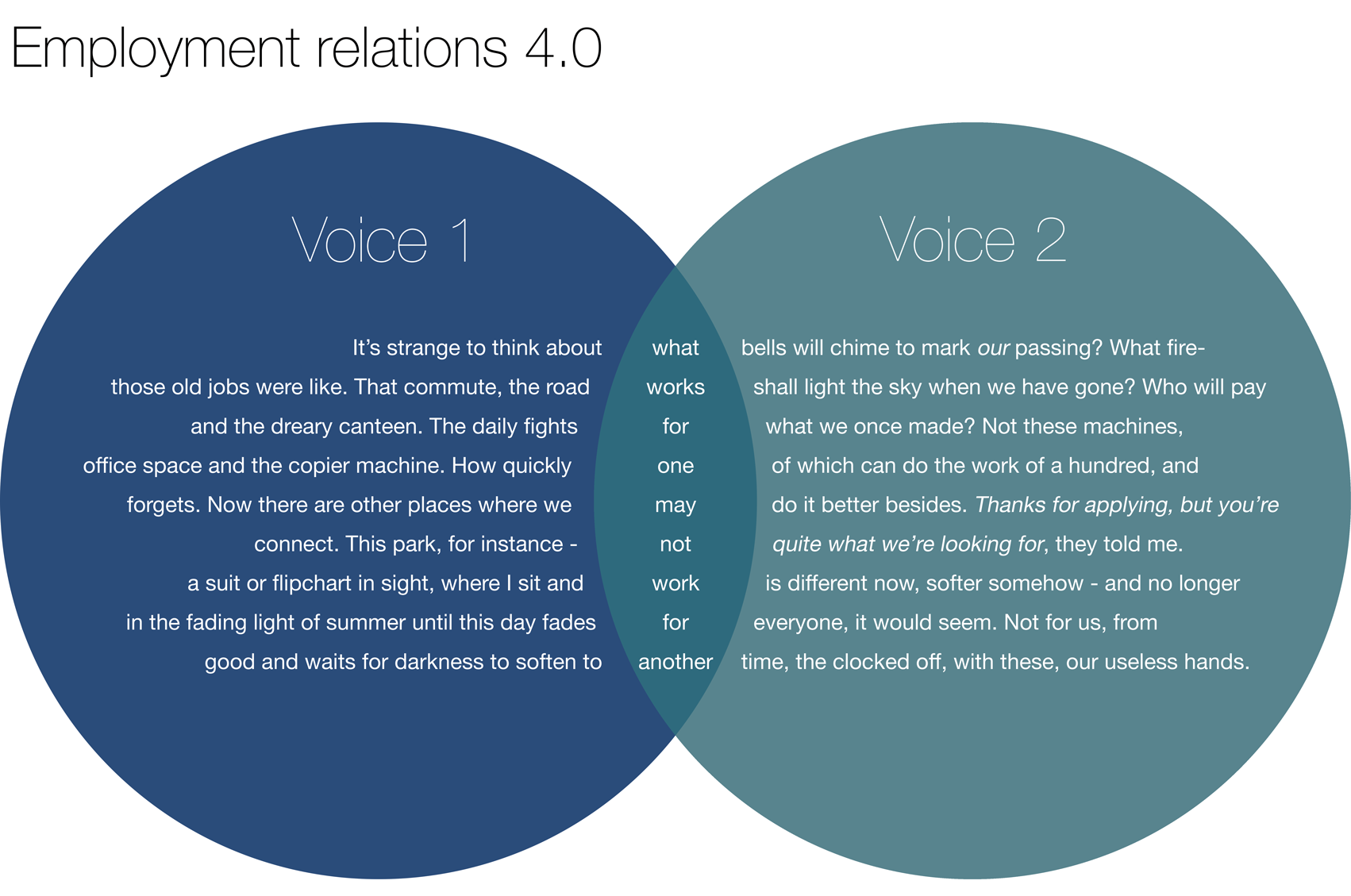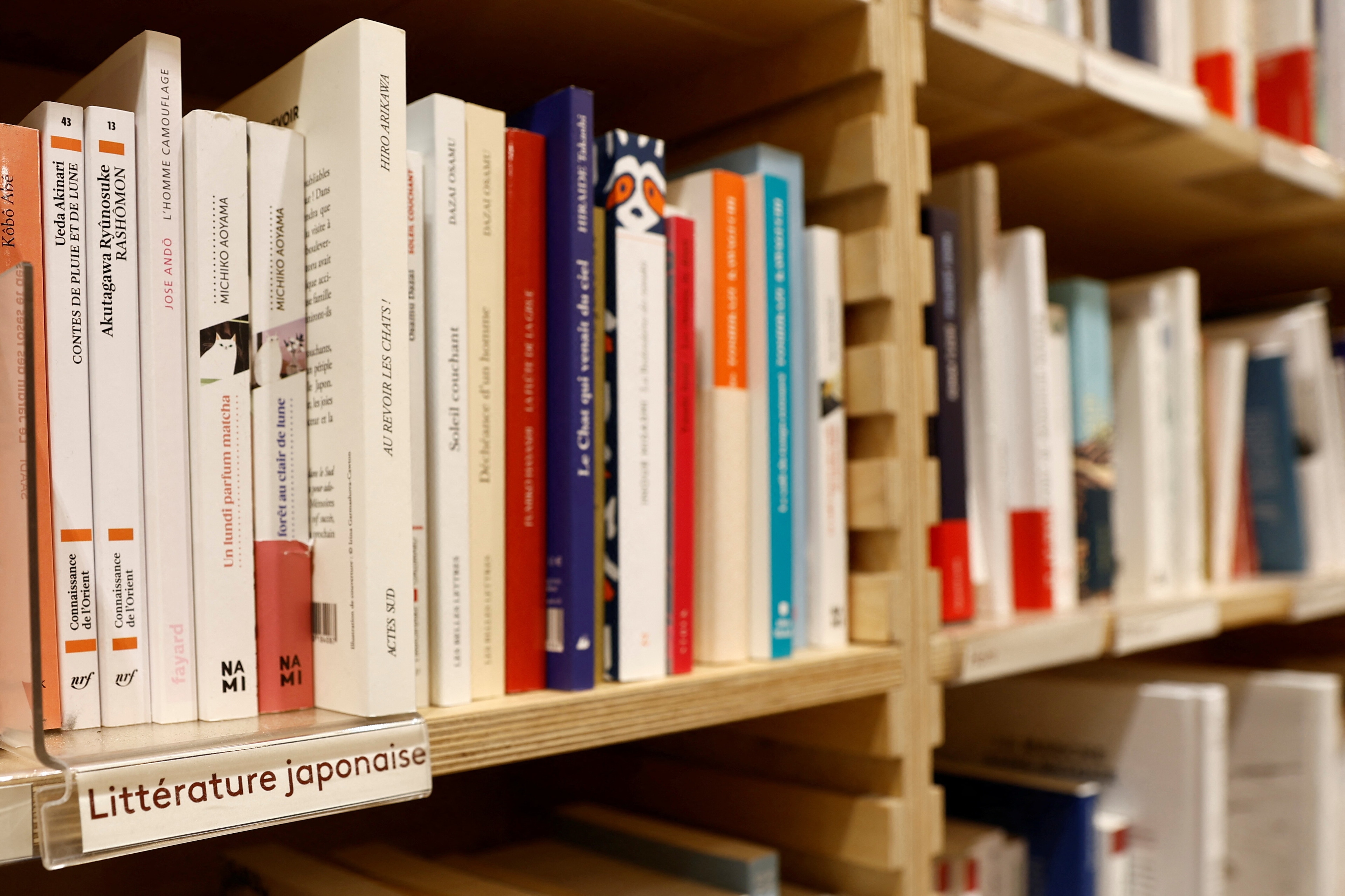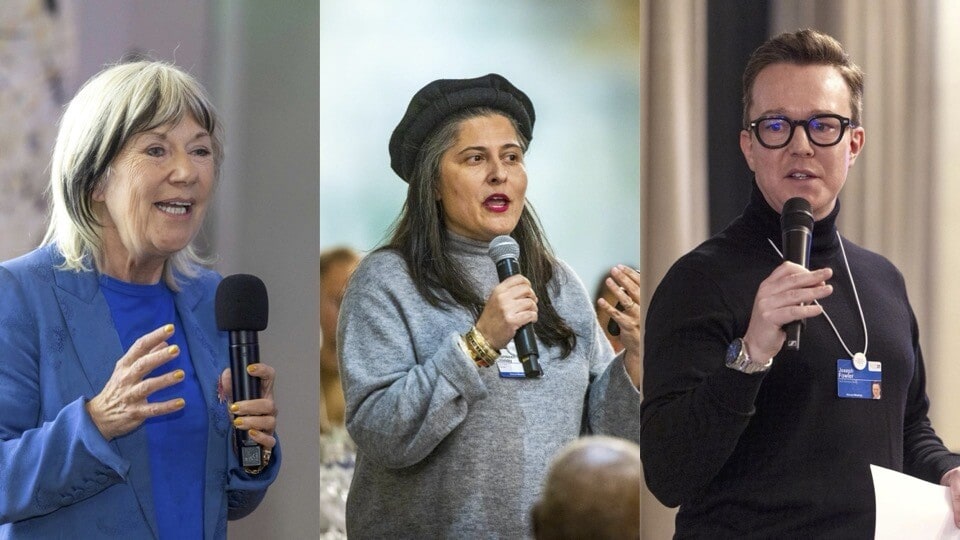Introducing a series of poems on the Fourth Industrial Revolution

Are we losing the human touch? The series will probe our relationship with technology Image: REUTERS/Wolfgang Rattay
The World Economic Forum has commissioned Brian Bilston, the “unofficial poet laureate of Twitter”, to write a series of four poems on the theme of the Fourth Industrial Revolution.
Yes, you did read that right. The Forum is best known for bringing CEOs and world leaders together at Davos: we’re associated with statements, not stanzas. But in fact we have a history of involving cultural figures, from Elif Shafak to Yo-Yo Ma, because the global economy does not operate in a vacuum, and because artists offer nuanced and provocative perspectives on the most important questions of the day.
Empathy moves people more than economic data. Bilston first came to our attention with his poem Refugees, which uses an inventive form to skewer the callous xenophobia behind our reaction to “these haggard faces” - of whom there are now 60 million in the world, the highest number since the Second World War. Read the poem top-down, it’s a racist diatribe. Read it bottom-up, it’s the reverse.
In the first in a series of four poems about the Fourth Industrial Revolution, The Alan Turing Prize for Poetry, Bilston imagines pitting himself against a “poetry bot” spewing out language on the dictates of an algorithm. Invented by the computer scientist Turing in 1950, the test gauges whether Artificial Intelligence can pass as a human being: one programmer already claims to have pulled off this feat by successfully submitting a poem written by an algorithm to a literary journal.
Like much of Bilston’s work, the Turing Prize is playful, but the message is profound. How do you weigh up the value of the human touch, language which is “carefully deliberated, hard won,” against the cold efficiencies of the machine age?
This is not an abstract question. A net loss of five million jobs in advanced economies alone is predicted over the next five years, according to the Future of Jobs report. More broadly, the ever closer convergence between man and machine is putting today’s policy-makers into uncharted ethical territory. As Professor Klaus Schwab, the Founder and Executive Chairman of the World Economic Forum, puts it:
“In its most pessimistic, dehumanized form, the Fourth Industrial Revolution may indeed have the potential to ‘robotize’ humanity and thus to deprive us of our heart and soul. But as a complement to the best parts of human nature—creativity, empathy, stewardship—it can also lift humanity into a new collective and moral consciousness based on a shared sense of destiny.”
Bilston's second poem in this series also plays with this theme, imagining the future of work as a dialogue between a winner and a loser:

In the third poem, he considers the quiet horror of a life where "everything is just so / optimized / into tyrannical perfection, while the fourth uses the wheel as a metaphor for understanding each of history's technological revolutions. Bilston first collection of poems, You Took the Last Bus Home, will be published by Unbound in October.
Artists have long played an important role in probing the “heart and soul” of our societies amid economic upheaval. Blake’s “dark Satanic mills” are enduring shorthand for the First Industrial Revolution, Warhol’s pop art images satirized the rise of conveyor belt consumerism. Poetry doesn’t provide answers, but it does find a different way – urgent, visceral and searching – to frame questions.
Don't miss any update on this topic
Create a free account and access your personalized content collection with our latest publications and analyses.
License and Republishing
World Economic Forum articles may be republished in accordance with the Creative Commons Attribution-NonCommercial-NoDerivatives 4.0 International Public License, and in accordance with our Terms of Use.
The views expressed in this article are those of the author alone and not the World Economic Forum.
Stay up to date:
Values
Related topics:
Forum Stories newsletter
Bringing you weekly curated insights and analysis on the global issues that matter.
More on Arts and CultureSee all
Elena Raevskikh and Giovanna Di Mauro
October 22, 2025






